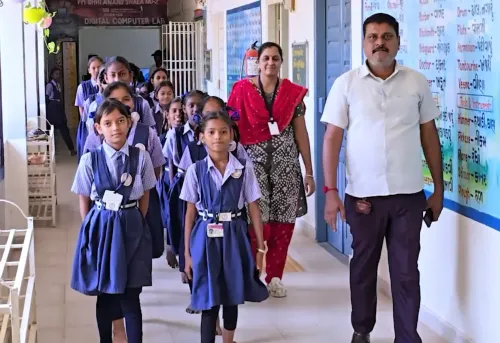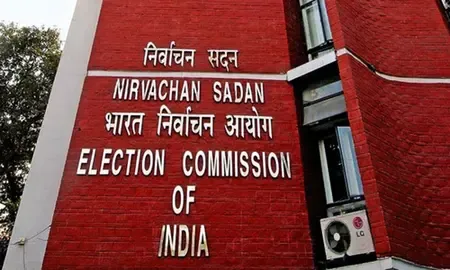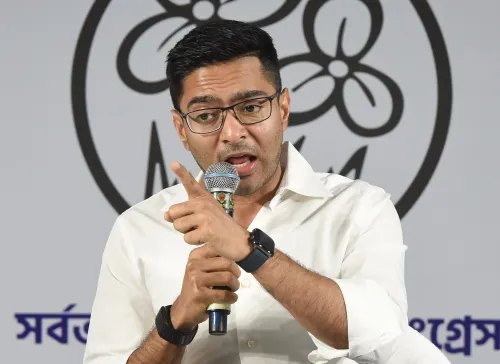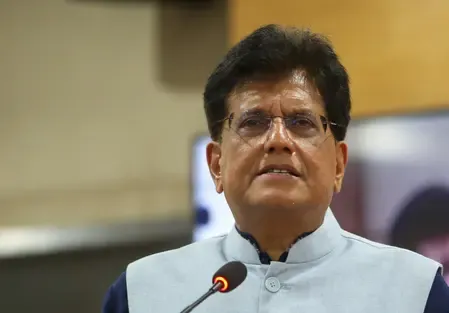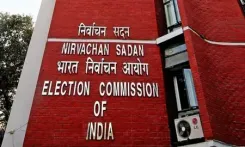Did CM Siddaramaiah Celebrate Banu Mushtaq and Deepa Bhasthi for Elevating Kannada Literature with the Booker Prize?
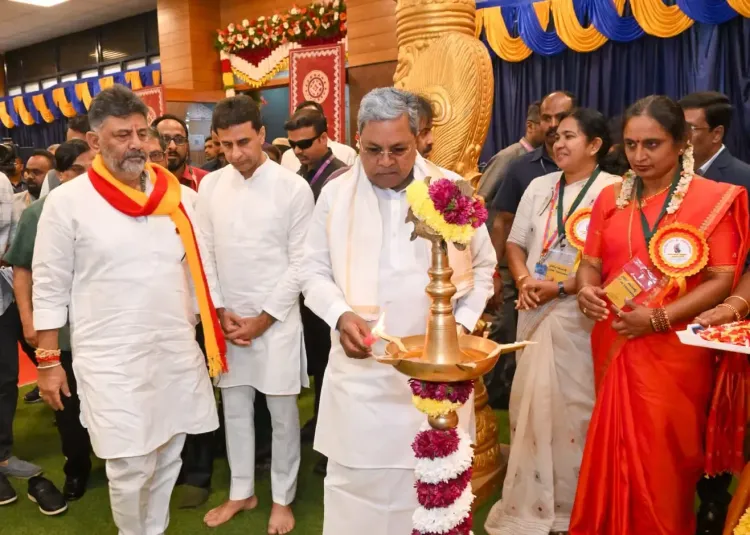
Synopsis
Key Takeaways
- Banu Mushtaq and Deepa Bhasthi achieved a historic win for Kannada literature with the Booker Prize.
- The CM highlighted the need for educational reforms to support regional languages.
- Karnataka has overtaken Maharashtra in attracting FDI.
- Over 2,000 years of Kannada history emphasizes its cultural significance.
- Political dynamics can influence recognition and opportunities for artists.
Bengaluru, Nov 1 (NationPress) Karnataka's Chief Minister Siddaramaiah expressed his heartfelt congratulations to Kannada authors Banu Mushtaq and Deepa Bhasthi for achieving the prestigious Booker Prize for Kannada literature, emphasizing that their remarkable accomplishment demonstrates the global prominence of the language.
Previously, CM Siddaramaiah faced criticism for inviting only Banu Mushtaq to inaugurate the historical Mysuru Dussehra celebrations. The BJP claimed her selection was an instance of "appeasement politics," while translator Bhasthi was overlooked due to her Hindu identity.
Banu Mushtaq, a Kannada-language writer, lawyer, journalist, and activist, won the International Booker Prize in May for her short-story collection "Heart Lamp" (originally in Kannada). This marked a historic first for a Kannada-language work. Bhasthi made history as the first Indian translator to win the prize by translating the book into English.
The CM reflected on Karnataka, which was formed through unification in 1956 and is approaching its 70th year. He paid tribute to the martyrs of the unification movement, recalling figures like Mysuru student Ramaswamy, Ranjan Saab from Ballari, and many others, including Aluru Venkata Rao and Kengal Hanumanthaiah.
Siddaramaiah highlighted Kannada’s over 2,000-year history as a classical language but noted that neglect in education poses significant challenges. He emphasized that children in developed countries think and learn in their mother tongues. In contrast, excessive focus on languages like English and Hindi has diminished children’s abilities. He called for a law to ensure mother tongue education, urging the Central Government to take this matter seriously.
He accused the Union Government of discriminatory practices against Karnataka, stating, "Karnataka contributes over Rs 4.5 lakh crore in taxes but is denied its fair share." He argued that while funds are allocated for Hindi and Sanskrit, regional languages like Kannada are neglected. He also pointed out that critical projects for Karnataka’s development are being denied funding by the Centre.
Siddaramaiah mentioned that Karnataka lost approximately Rs 1 lakh crore due to unfair practices under the 15th Finance Commission, warning that failure to constitutionally resist such centralization could compromise the state's autonomy.
Highlighting Karnataka's progress, he noted that the state has surpassed Maharashtra as the top destination for Foreign Direct Investment (FDI), attracting Rs 50,107 crore in 2024–25, which represents 51 percent of India’s total FDI. He added that per capita income in Karnataka has increased by 101 percent over the past decade, with the state leading in biotechnology, coffee, silk, pigeon pea, arecanut, ragi, and sunflower production.
In conclusion, he encouraged the youth to uphold the legacy of sacrifice and strive to build a progressive, inclusive, and compassionate Karnataka.

